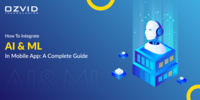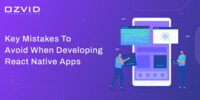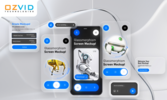- Mar 12, 2024
Share this post on:
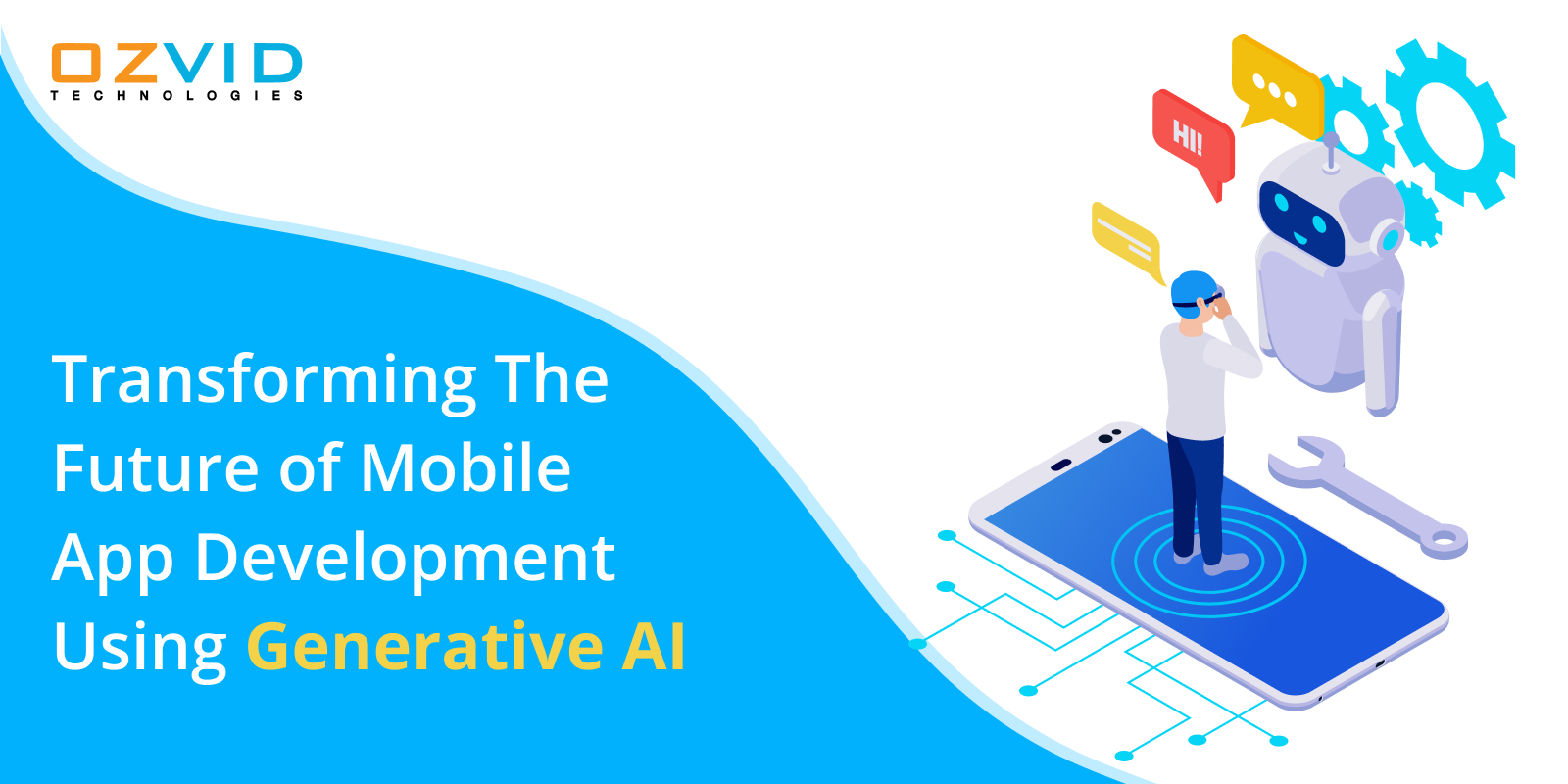
The world of business is rapidly changing, and one of the most significant developments in recent years has been the emergence of generative AI. This technology has the potential to revolutionize numerous industries, including mobile app development. By leveraging the power of generative AI, companies can create innovative apps that are tailored to meet the specific needs of their users.
In this blog post, we will explore the future of mobile app development and how businesses can harness the potential of generative AI to stay ahead of the competition.
Generative AI: A Brief Overview
Generative AI refers to a class of AI systems that can create new content, such as text, images, or even code, based on the data they have been trained on. This technology has the potential to transform various industries, including mobile app development, by automating tasks, enhancing efficiency, and improving user experiences.
How Generative AI Is Transforming Mobile App Development
As generative AI technology continues to advance, it is poised to transform the mobile app development industry. With the ability to create customized and personalized experiences for users, companies can differentiate themselves from competitors and provide unique value to their customers. Here are some potential ways that generative AI could shape the future of mobile app development:
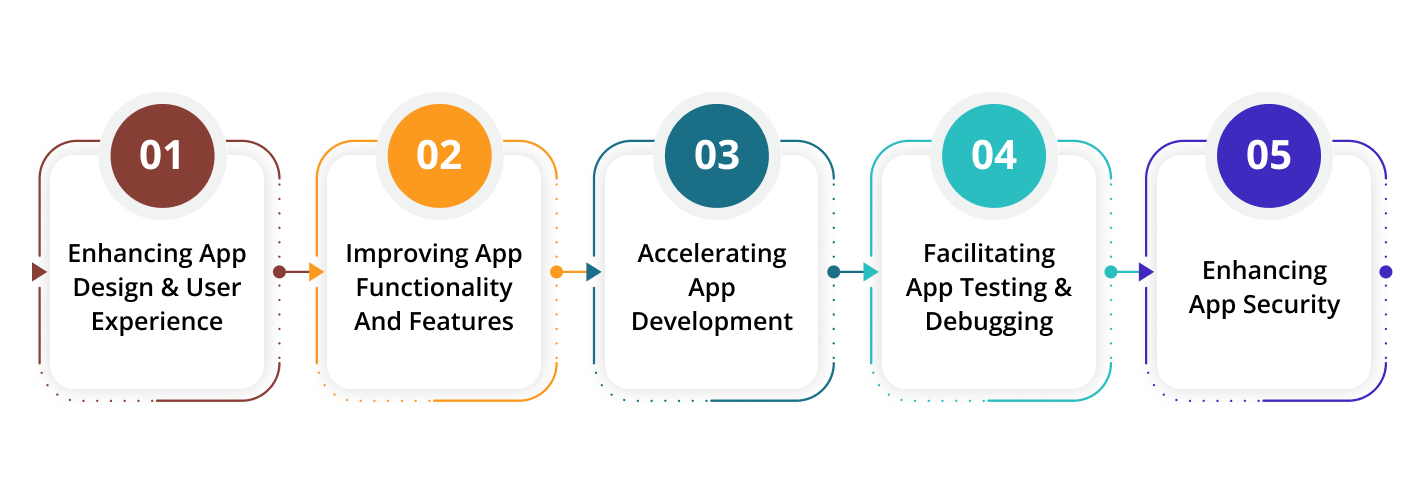
Enhancing App Design and User Experience
Generative AI has made significant strides in enhancing app design and user experience. AI-powered tools can generate customizable and visually appealing designs based on user preferences, saving developers time and effort in the design phase.
One such tool is Midjourney, an AI-driven platform that can create stunning visuals and designs for apps. Midjourney uses a combination of deep learning algorithms and natural language processing to generate unique and visually appealing images based on user prompts. This enables developers to create apps with a polished and professional look that aligns with their target audience’s expectations.
Improving App Functionality and Features
Generative AI is also transforming the way apps are developed by improving their functionality and features. AI-powered tools can analyze user behavior and preferences to generate personalized recommendations, optimize app performance, and identify potential issues before they become a problem.
One example of an AI-driven tool that enhances app functionality is OpenAI’s GPT-3. GPT-3 is a large-scale language model that can generate text, summarize articles, and even code in various programming languages. Developers can leverage GPT-3 to automate repetitive tasks, generate natural language interfaces for their apps, and improve app performance by optimizing code and fixing bugs.
Accelerating App Development
Generative AI is helping to accelerate the app development process by automating repetitive tasks and providing developers with valuable insights into user behavior and preferences.
An AI-powered platform that assists in accelerating app development is GitHub Copilot. GitHub Copilot is an AI-driven coding companion that uses machine learning techniques to suggest code completions as developers type. This tool can significantly reduce the time spent on coding tasks and help developers write more efficient and maintainable code, thereby speeding up the app development process.
Facilitating App Testing and Debugging
Generative AI also plays a crucial role in app testing and debugging by identifying potential issues and optimizing app performance. AI-driven tools can analyze user behavior and generate comprehensive test scenarios, enabling developers to uncover and fix bugs more efficiently.
An AI-driven tool that facilitates app testing and debugging is Google Test AI. Google Test AI is a deep learning-based testing tool that generates test cases based on user interactions with the app. This tool can help developers identify and fix bugs more effectively, ensuring that their apps are of higher quality and more reliable.
Enhancing App Security
Lastly, Generative AI is contributing to the enhancement of app security by detecting vulnerabilities and providing developers with actionable insights to mitigate potential threats.
One such AI-driven tool that improves app security is Hack Detection AI. Hack Detection AI uses machine learning algorithms to identify suspicious activities and potential security threats in apps. Developers can leverage this tool to protect their apps from cyberattacks and ensure user data is kept safe.
Challenges and Considerations
While generative AI offers numerous benefits to an app development company, there are also challenges and limitations to consider:
Ethical Concerns
As businesses adopt Generative AI in mobile app development, they must ensure that the technology is used ethically and transparently. This includes addressing concerns such as data privacy, bias in AI algorithms, and the potential impact on jobs.
Legal and Regulatory Compliance
Businesses must also be aware of the legal and regulatory implications of using Generative AI in their mobile app development process. This includes understanding intellectual property rights, privacy laws, and any potential liability issues that may arise.
Integrating AI into Existing Systems
Incorporating Generative AI into an existing mobile app development process can be challenging, as businesses must ensure seamless integration with their current tools, workflows, and infrastructure. This may require upskilling developers, investing in new tools, and adopting new methodologies.
Conclusion
The future of mobile app development lies in embracing Generative AI, as it has the potential to revolutionize the industry by enhancing user experiences, accelerating development time, and improving app quality. However, businesses must also address ethical concerns, and legal and regulatory challenges, and ensure seamless integration with existing systems. By doing so, they can harness the power of Generative AI to stay ahead in the competitive market and deliver innovative, high-quality mobile apps to their customers.



